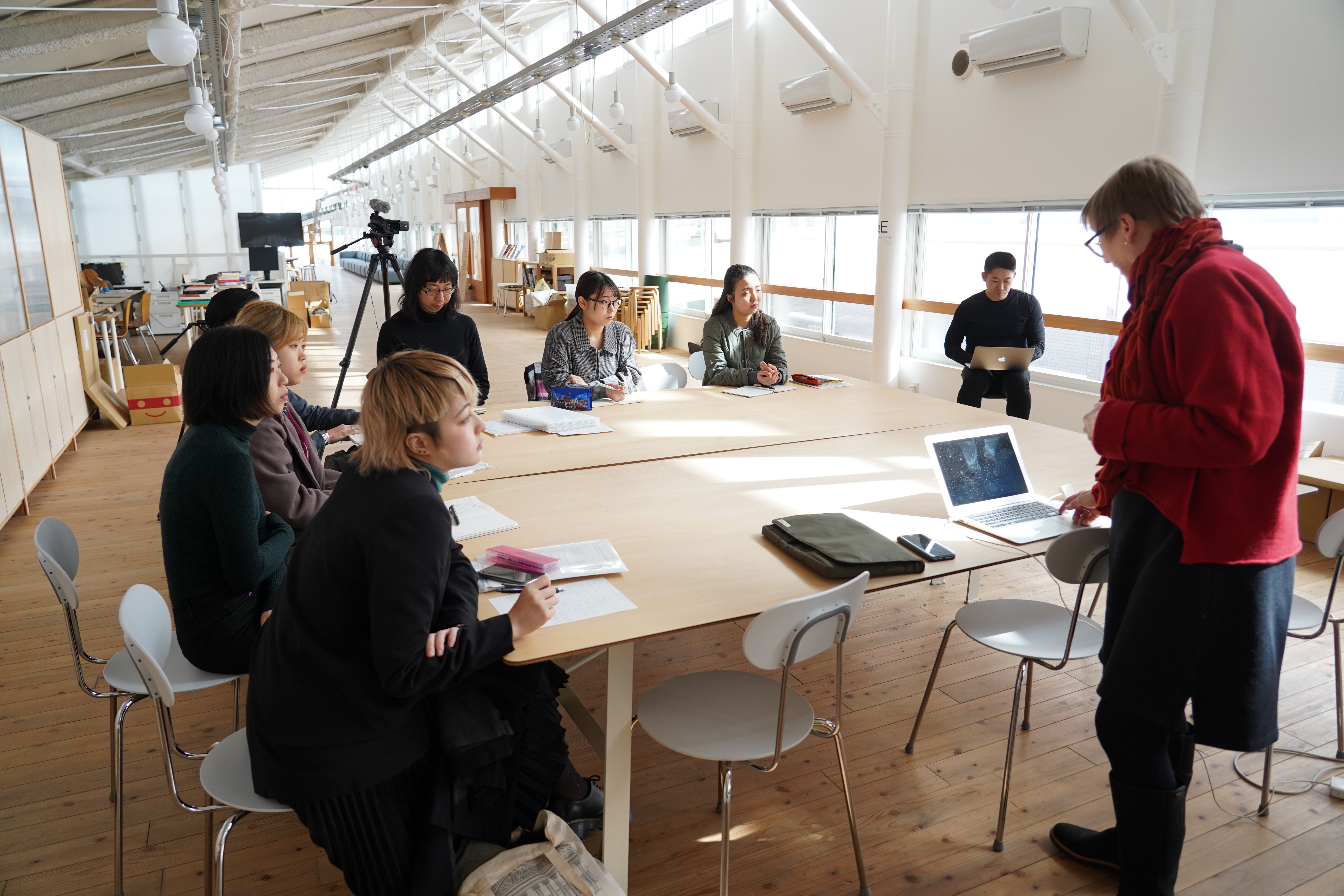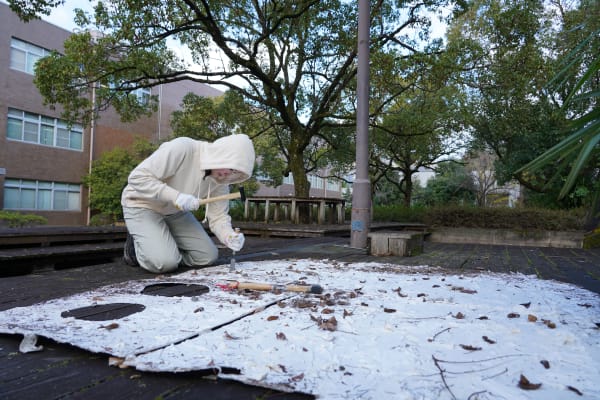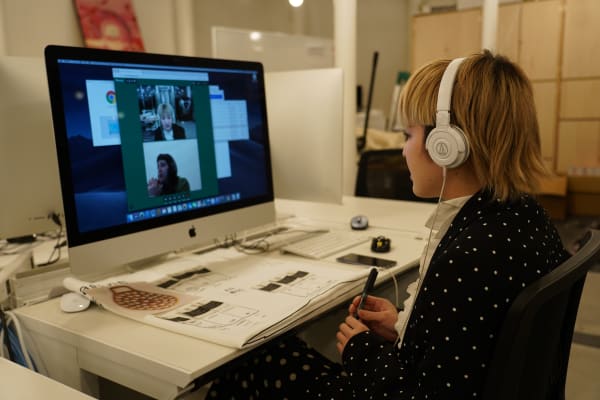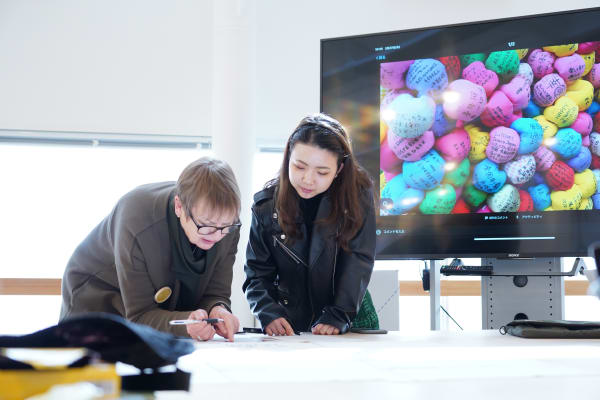A new dual Masters from UAL and Japan’s Kyoto Institute of Technology (KIT) introduces an innovative cross-cultural design education, to reflect the emerging challenges of our time.
The UAL/KIT MA Global Collaborative Design Practice focuses on interpreting the UN Sustainability Development Goals from local standpoints. A first of its kind for UAL, the 2-year course aligns diverse career paths. Students will graduate with 2 Masters degrees, one from each institution: a Design Masters (MA) from UAL and a Masters of Engineering (MEng) from KIT.
It was co-developed with KIT by the School of Design at UAL’s Camberwell, Chelsea and Wimbledon Colleges. Headed by Dean of Design Simon Maidment, the School leads in the evolution and relevance of design practice and its future contexts of engagement.
Providing a student experience from 2 continents, one class will study at the same time in London and Kyoto. The combined Arts and STEM curriculum equally reflects the 2 institutions, teaching cultures and creative contexts. The course will use the design process as a common language for students to test, communicate and put ideas into action.
MA Global Collaborative Design Practice welcomes individuals from diverse fields such as design, healthcare, environment, policy and engineering. It is now open for applications for 2021. Find out more and meet the course team at the online Open Day on 21 January 2021.

London Camberwell and Kyoto
The 2 locations will follow a shared programme of study, interacting in person and remotely as one synchronised peer group throughout. The London group will attend Camberwell College of Arts, UAL with the Japan group based at the KIT campus in Kyoto’s Sakyo Ward.
The course has a dedicated joint studio space – an active learning environment and community both physically in London and Kyoto and shared digitally. Students from each location will meet at the beginning of the academic year for intensive face-to-face collaboration before interacting remotely as a global collective from KIT and UAL.
In 2019 and 2020 the course teaching model was piloted in London and Kyoto, to test and inform the development and final curriculum.
Course themes
Global
How can we understand global challenges in distinct local contexts and address them practically and/or speculatively?
Collaborative
How can sensitivity and inventiveness bridge cultures? How can they help us communicate in diverse teams and prompt new models of cross-cultural and cross-disciplinary learning?
Design
How can design prototyping across media, material, process and culture act as a hands-on, non-textual language for iterating ideas?
Practice
How can design evolve to practice beyond creative industries, to demonstrate new roles in addressing society's most critical challenges?
Our partner: Kyoto Institute of Technology (KIT)
Tradition and research-led innovation are key features of KIT’s character as a specialist national university of Japan. It is located in the ancient capital of Kyoto, where Japan’s centuries’ old craft and design expertise and traditions rub shoulders with cutting-edge manufacturing. KIT students have access to the whole spectrum of design and making activity at all levels in the wider community.
KIT’s design and architecture school and its museum and archives have a strong research record, particularly in materials, life sciences and textile engineering, dating back to the Meiji Period.
Collaboration across subjects and specialisms is a fundamental and natural part of the KIT educational ethos and process.
Find out more
- View the course page
- Register for the course Open Day on 21 January 2021
- Find out about studying at Camberwell College of Arts, UAL
Main image: Piloting the course in Kyoto. Photo by Tomohiro Tanaka
At the course pilots in London and Kyoto
Welcome and introduction to the Design School at Camberwell, Chelsea Wimbledon, UAL.






